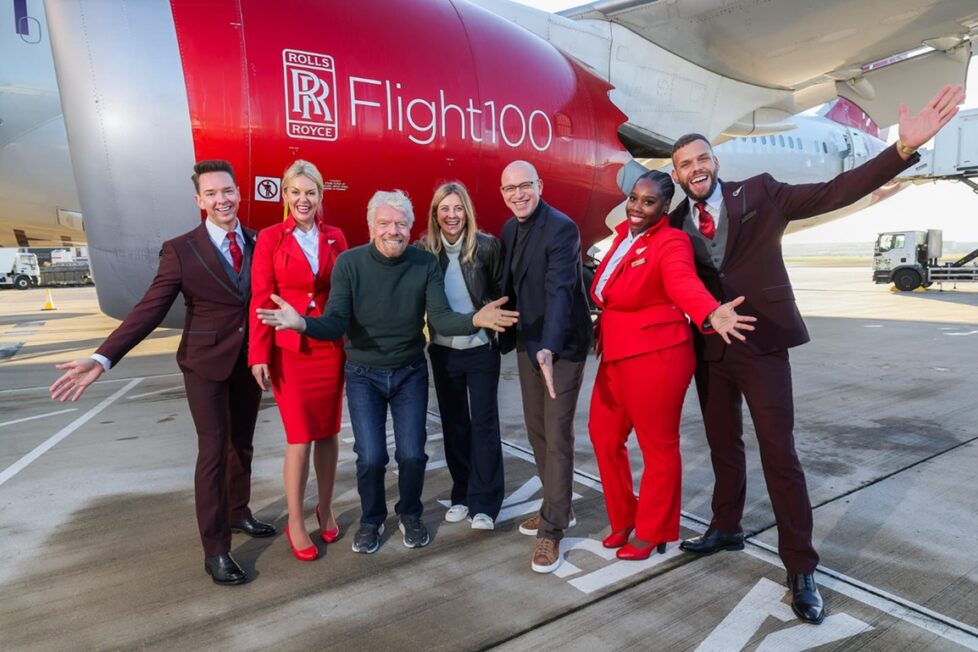Virgin Atlantic Completes First Ever 100% SAF-Powered Transatlantic Flight on Commercial Airliner


A consortium led by Virgin Atlantic announced the successful completion of Flight100, the first ever transatlantic flight by a commercial airline using 100% sustainable aviation fuel (SAF).
The flight, conducted on a Boeing 787 using Rolls-Royce Trent 1000 engines, originated in London’s Heathrow Airport, and landed at JFK Airport in New York on Tuesday evening, with Virgin Atlantic founder Richard Branson on board.
In a blog post following the flight, Branson wrote:
“The world will always assume something can’t be done… until you do it. The spirit of innovation is getting out there and trying to prove that we can do things better for everyone’s benefit. This flight today shows that sustainable jet fuel can be used as a drop-in replacement for jet fuel – and it is the only viable solution for decarbonising long-haul flights.”
The consortium included Rolls Royce, Boeing, University of Sheffield, Imperial College London, ICF and Rocky Mountain Institute, and the initiative was supported by funding by the UK Government’s Department for Transport.
The milestone announcement follows a pledge last year by the UK government to deliver the first-ever net-zero emissions transatlantic flight, powered by 100% sustainable aviation fuel by the end of 2023, and an announcement in December by the government that Virgin Atlantic had won a competition to receive funding to operate the flight.
UK Transport Secretary Mark Harper said:
“Today’s historic flight, powered by 100% sustainable aviation fuel, shows how we can both decarbonise transport and enable passengers to keep flying when and where they want.”
Fuel accounts for the vast majority of the aviation sector’s emissions. Generally produced from sustainable resources, like waste oils and agricultural residues, SAF producers estimate the fuels can result in lifecycle GHG emissions reductions of as much as 85% relative to conventional fuels.
The SAF for the flight was a blend of 88% Hydroprocessed Esters and Fatty Acids (HEFA), which utilizes waste fats, oils, and greases as feedstock, supplied by AirBP and 12% synthetic aromatic kerosene (SAK), derived from plant sugars, supplied by Marathon Petroleum subsidiary Virent.
Shai Weiss, Chief Executive Officer, Virgin Atlantic said:
“Flight100 proves that Sustainable Aviation Fuel can be used as a safe, drop-in replacement for fossil-derived jet fuel and it’s the only viable solution for decarbonising long haul aviation. It’s taken radical collaboration to get here and we’re proud to have reached this important milestone, but we need to push further.
In addition to showcasing the capabilities of SAF, Virgin Atlantic said that the flight will also assess the fuel’s usage on non-carbon emissions, improving the understanding of the effects of SAF on contrails and particulates, with research supported by consortium partners ICF, Rocky Mountain Institute (RMI), Imperial College London and University of Sheffield.